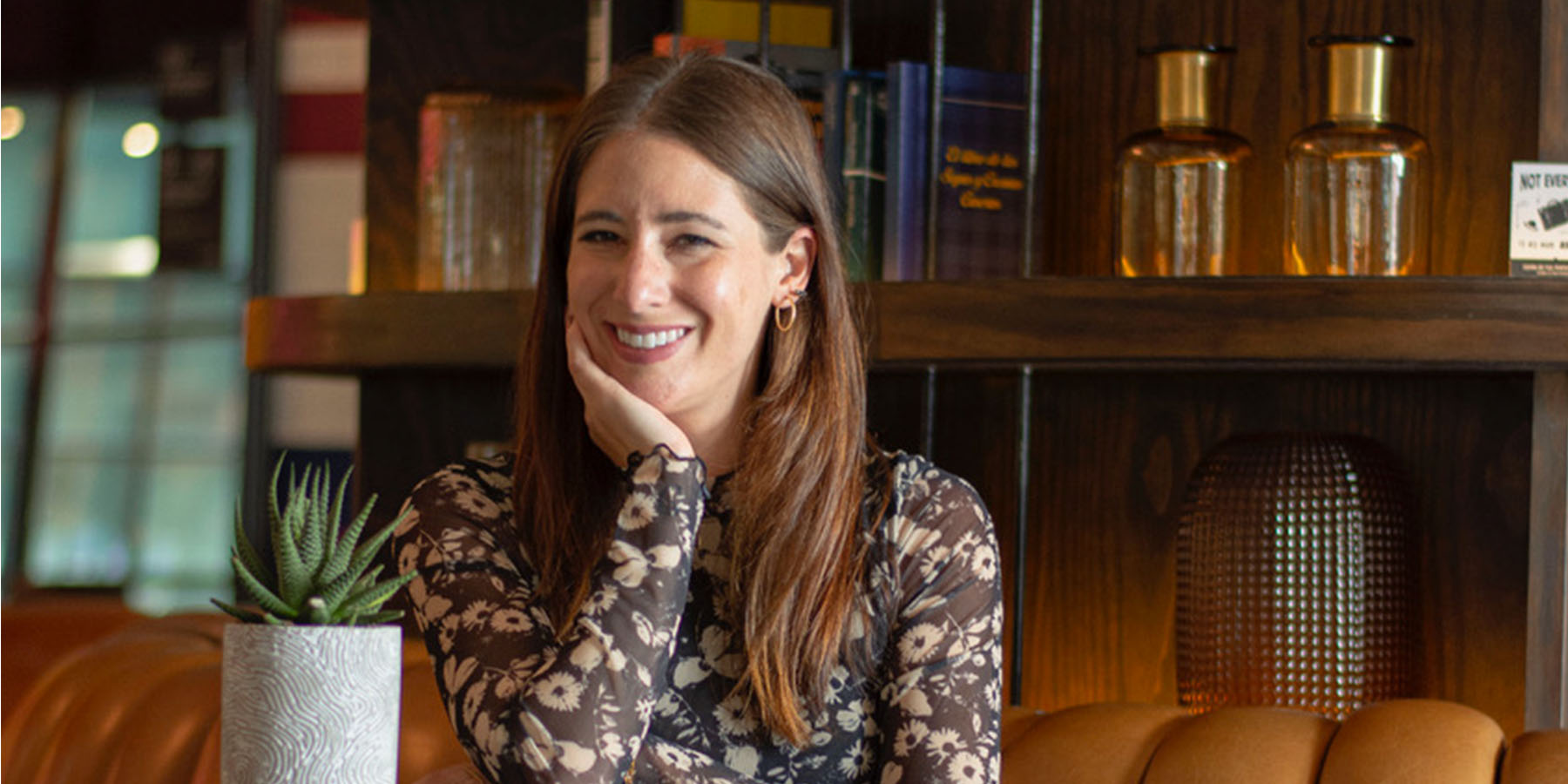In this Media Matters interview, Fublis presents an engaging conversation with Elle Yap, an insightful writer whose work spans introspective themes and pop culture critique. With a unique approach to exploring emotions like loneliness and the complexities of modern life, Elle has developed a voice that resonates deeply with readers seeking both relatability and reflection in contemporary media.
Throughout this interview, Elle shares her creative journey, from in-depth investigative reporting on high-stakes stories to her influences from cinema and pop culture. She discusses the challenges of balancing analytical perspectives in film reviews with more personal, introspective writing. Elle’s approach to crafting meaningful narratives combines authenticity and thoughtful analysis, providing a window into the universal experiences that define our lives. Here, Elle reveals her techniques for making introspective topics accessible, her inspirations, and invaluable advice for aspiring writers.
How do you connect with readers when writing about loneliness?
Elle Yap: I never really thought about it that way, that I need to connect with readers when writing about loneliness. But I do think that when readers attach themselves to my writing like that, it’s because “loneliness” as a feeling is universal. Whether you have a lot of friends or just your family, it’s something that everyone experiences. I always write about the topic in this candid, referential way where I can tether it to pop culture stuff to make it understandable, to make it make sense to me personally, before I return to the feeling. To people who feel that way but don’t understand *why* they do, it’s something that gives their feelings a small spark of life. It’s the ability to point at something and say, “that’s what I feel,” instead of spending so many words on trying to articulate something abstract. That’s what connects with readers, I think.
In today’s fast-paced world, how do you keep introspective writing relatable?
Elle Yap: Mostly it’s knowing how to talk to your audience. Some people say that only *this* topic or *that* topic can be relatable, but that’s not true. Anything can be relatable if you know how to write it. What writers need in this regard is to be willing to walk their readers from one idea to another, allowing them to be easy to follow and engaging. Relatability is really just whether a writer is willing to go down to their audience and explain their ideas point-by-point or not.
Could you share a review or pop culture piece that you’re especially proud of and why?
Elle Yap: I’ve recently written a review on “Megalopolis” (link: https://bluprint-onemega.com/arts-culture/megalopolis-analyzing-themes-and-architecture/) that I think balances my warm feelings on the movie and the more analytical digging that probes its themes and ideas and why they fall short in spite of their ambitions.
Another essay I wrote, this one about “The Matrix Resurrections,” (link: https://web.archive.org/web/20230328212419/https://sineliwanag.com/2022/02/15/the-matrix-resurrections-destroying-the-illusion-of-binaries-in-society/) does feel like it looks into a specific timeline in the film industry that belies the lack of creativity in the authorities managing film corporations, and the ways that artists still find their voice even with these restrictive, IP-driven filmmaking.
Especially in these pop culture pieces, I feel like I have a need to spotlight the interesting artists and engage with their ideas earnestly. It’s a responsibility not just to highlight the good in something, but to probe and analyze further why they’re good and how the artist’s approach to the material works well.
What’s the most challenging breaking news story you’ve covered?
Elle Yap: When I was still working as a freelance writer, I wrote a series of articles covering the drama over the Hidroituango hydroelectric dam and the irregularities with its contractors. That was probably the first time I felt like a real journalist, because I was digging through court documents, press releases, financial statements, and the like to find where the story is. I still feel proud about some of those articles, because they were informative and they gave even readers unfamiliar with the controversy a good rundown of what happened and why it’s important.
Are there any specific films that have shaped your writing style over time?
Elle Yap: Lots of films have shaped my style of writing, though I think my primary influences have been Kevin Smith and Quentin Tarantino. Both of their scriptwriting contains multitudes of pop culture references and long monologues analyzing the film from their character’s perspectives. It’s really influenced my work in the sense that it’s pushed me to be inquisitive about the media I consume, and to allow that spirit to permeate through my writing.
Another influence would be the 2000 drama film “High Fidelity.” That was the first time as a young teen where I saw pop culture references be used as a way to discuss the self—John Cusack’s character only sees his emotions in music, top five lists and indie rock cred. The way the movie deconstructs that kind of nerdy worship of culture into something human and personal affected how I approach art fundamentally.
What’s your process for gathering information when working on more introspective stories?
Elle Yap: Part of what makes any writing good is the details behind it, so as much as possible I do try to do hands-on research on everything I feature in my work. That means trying to go to the places I mention, or reading a lot of journal articles and books on a topic to see how others have approached it. Being there, seeing and hearing and feeling things, it gives me renewed insight on what I can write about—and sometimes, it gives me new ideas and approaches that show up in my writing.
What challenges aspect of writing do you face when writing about pop culture compared to introspective themes?
Elle Yap: I think, with pop culture, there’s always an abundance of writing about any and every interesting aspect of a film or TV show. You really have to work hard to have an original insight or analysis about a movie. It differs from introspective writing, in that sense: everything there comes from yourself, from the interior world you’ve created, and done right it can create terribly original images and sentences about mundane, well-trodden topics. You can only analyze something like “The Godfather” so many times before you run into circles, but topics like love or loneliness are evergreen.
How has your writing evolved while balancing those different themes, and what advice would you offer to writers making a similar transition?
Elle Yap: The way I’ve gone about it is to ensure that there’s always a piece of me in every article I write. Especially with writing about cultural stuff like art or film, there’s a fear of basically just summarizing a subject and whatnot. In every article I write, I add my own insights to what I’m seeing and how it affected me sprinkled throughout, even if I can’t be explicit about it. It’s what keeps me grounded when working: that this thing is effective or ineffective, and that’s something that will affect the reader, too, if they give it a chance.
According to you, what are crucial elements one should keep in mind to make a movie review insightful and engaging?
Elle Yap: As I said before, I try to personalize everything to be insightful and analytical. Reviews and essays are boring if they just regurgitate details about what happens. Dip down on the themes! Engage with how the art pushes its audience! Tell the readers what you actually felt when seeing a work! And then from there, expand forward to link it towards bigger themes and societal ideas, or get even more insular by talking about how it worked with you on a personal basis. Readers are more engaged if they feel like they’re actually reading something that people worked on and cared about, so my recommendation is to care about what you’re writing about and engage with the material.
What advice would you give to writers looking to explore more personal or introspective work?
Elle Yap: What I would give as advice is to never write while the feelings you have about what you’re working on are still fresh. For introspective material to work, one needs a sense of distance to give us the insights necessary to work on the ideas. I mean, note down what you want to write and your ideas about it, but also sit on what you’re working on and only start when you feel clearheaded enough to approach the topic with a sense of distance.




